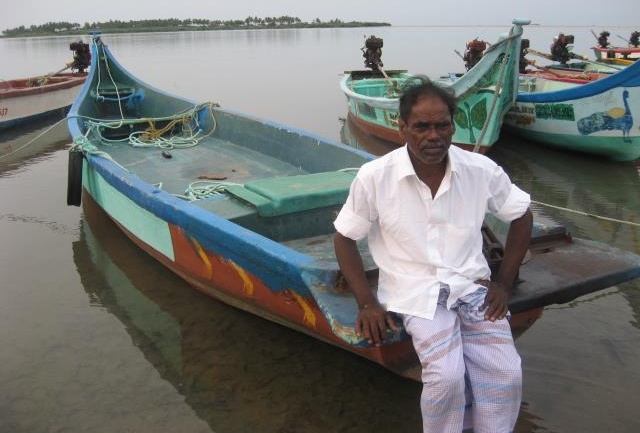Farida and five neighbouring families live in a remote village in Northern Bangladesh, where lack of access to clean water is crucial need.
All families in the village shared a tube well. However, there were many challenges that came with this. As the well was just outside the community, collecting water in the rainy season was a treacherous experience. Farida would have to cross submerged roads and flooded fields, multiple times each day, hauling heavy jerry cans of water with her.
In the dry season, conditions were not much better. The high elevation of their village meant the well was not deep enough to reach any water during the hot season, when the ground water dried up.
Installing a well with a deep shaft would resolve this problem. However, the high costs associated with this were significantly beyond the means of this poor community who live hand to mouth. Instead families would have to walk long distances to collect water from the closest and safest source. This job was often tasked to women and girls, who worldwide spend a staggering 200 million hours walking to collect water every day. This time spent collecting water impacts the ability of women and girls to earn an income or attend school, and stymies their development.
“It was tedious work for us to collect water from long distances at other people’s wells,” said Farida. “Sometimes, after such a long walk, some households didn’t allow us to collect water from their well either.”
To combat this challenge and to reduce the journey, Farida and other families would often resort to collecting water from a nearby pond. However, this water was untreated and lead to the spread of water-borne diseases that affect children the hardest.
Although the community had attempted to receive a grant to build a well from the government and other organisations, they were sadly unsuccessful.
“We knew safe water is essential to live a healthy life,” said Farida, “but we did not have any source of safe water of our own. We felt deprived and dishonored but we did not have any alternative choice.”
However, thanks to the support of Australian Aid through the Civil Society Water and Sanitation Fund (CS WASH), and Habitat for Humanity donors, this community now has a choice, and access to a brighter, healthier future that comes with it.
With the support of Habitat for Humanity Bangladesh, a local committee has been formed in the community to improve access to clean water and knowledge of hygiene and sanitation practices. This includes the installation of a new tube within the community, which will provide access to clean, safe water all year round.
“This well has given us great relief from the challenges we previously experienced,” said Farida. “Beside drinking water, now we can take a bath in clean water and maintain our privacy. We are grateful to Habitat for Humanity for this well.”
Having their own tube well means communities do not need to resort to drinking unsafe water or plan their entire lives around how they will get water. Access to safe and clean water does not just mean improved health. Access to this essential and precious resource, means dignity and pride.
With your support, this project will see the completion of a further 100 tube wells and 600 toilets in Northern Bangladesh. Over 1,000 students will also receive training of hygiene practices, and 300 labourers on well and toilet construction.

Find out more:
Skip to content
Skip to sidebar
Skip to footer


